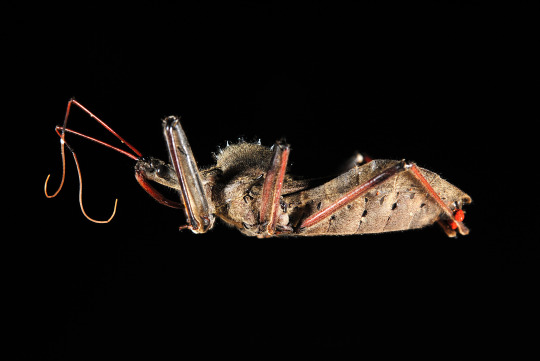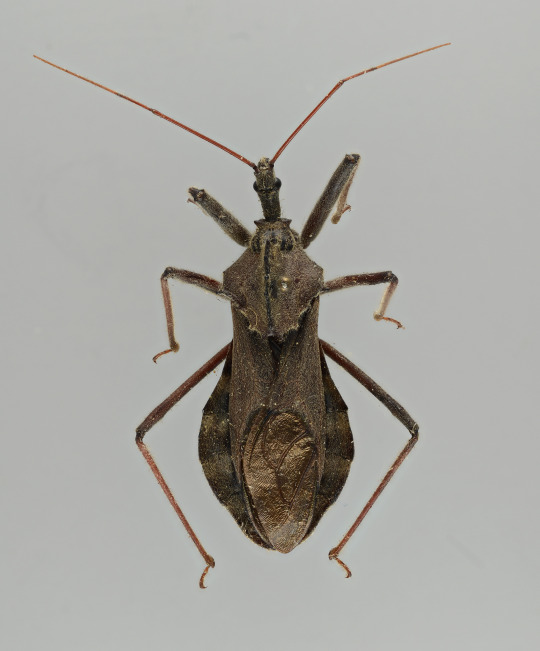
by Vanessa Verdecia
The wheel bug (Arilus cristatus) is common in the United States and can be found here in Pennsylvania during the summer. It is recognized by the crested “wheel” as seen in the lateral image of this Carnegie specimen, and the beak can be seen coming out of the front of the elongated head and angled back towards the body in the close-up image. Wheel bugs can be found during the day, and one should be careful not to handle them, as a bite from this species is very painful. It is reported as causing intense pain followed by numbness, but their toxins do not cause serious health problems.
Wheel bugs, however, are very important predators and should be left undisturbed. They play a valuable role as forest predators, feeding on other insects that would otherwise defoliate trees or cause other destruction.
The wheel bug is classified in the family Reduviidae, which is one of the predatory families in the order Hemiptera (the True Bugs).

This summer is all about poison at Carnegie Museum of Natural History. Staff will be sharing fascinating pieces of our collection that are toxic, poisonous, or venomous to celebrate our summer blockbuster exhibition The Power of Poison. For more information about this highly interactive, family-friendly exhibition, visit pop.carnegiemnh.org.
